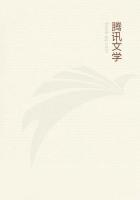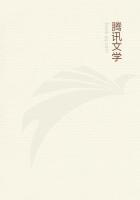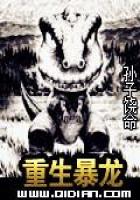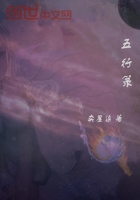"I'll tell you about that directly," he said, glancing at the girl who had put some cold meat and a bottle of wine on the table, and was now completing the preparations for Rupert's meal in a very leisurely fashion.
"Had I nothing to do but to look at pretty faces--which, by Heaven, I wish heartily were the case--I would beg you to stay,"
said Rupert, rising and ****** her a profound bow.
"I've no wish to hear what doesn't concern me," she retorted scornfully.
"What a rare and blessed disposition!" said he, holding the door for her and bowing again.
"I know what I know," she cried to him triumphantly from the landing. "Maybe you'd give something to know it too, Count Rupert!"
"It's very likely, for, by Heaven, girls know wonderful things!"
smiled Rupert; but he shut the door and came quickly back to the table, now frowning again. "Come, tell me, how did they make a fool of you, or why did you make a fool of me, cousin?"
While Rischenheim related how he had been trapped and tricked at the Castle of Zenda, Rupert of Hentzau made a very good breakfast. He offered no interruption and no comments, but when Rudolf Rassendyll came into the story he looked up for an instant with a quick jerk of his head and a sudden light in his eyes. The end of Rischenheim's narrative found him tolerant and smiling again.
"Ah, well, the snare was cleverly set," he said. "I don't wonder you fell into it."
"And now you? What happened to you?" asked Rischenheim eagerly.
"I? Why, having your message which was not your message, I obeyed your directions which were not your directions."
"You went to the lodge "
"Certainly."
"And you found Sapt there?--Anybody else?"
"Why, not Sapt at all."
"Not Sapt? But surely they laid a trap for you?"
"Very possibly, but the jaws didn't bite." Rupert crossed his legs and lit a cigarette.
"But what did you find?"
"I? I found the king's forester, and the king's boar-hound, and--well, I found the king himself, too."
"The king at the lodge?"
"You weren't so wrong as you thought, were you?"
"But surely Sapt, or Bernenstein, or some one was with him?"
"As I tell you, his forester and his boar-hound. No other man or beast, on my honor."
"Then you gave him the letter?" cried Rischenheim, trembling with excitement.
"Alas, no, my dear cousin. I threw the box at him, but I don't think he had time to open it. We didn't get to that stage of the conversation at which I had intended to produce the letter."
"But why not--why not?"
Rupert rose to his feet, and, coming just opposite to where Rischenheim sat, balanced himself on his heels, and looked down at his cousin, blowing the ash from his cigarette and smiling pleasantly.
"Have you noticed," he asked, "that my coat's torn?"
"I see it is."
"Yes. The boar-hound tried to bite me, cousin. And the forester would have stabbed me. And--well, the king wanted to shoot me."
"Yes, yes! For God's sake, what happened?"
"Well, they none of them did what they wanted. That's what happened, dear cousin."
Rischenheim was staring at him now with wide-opened eyes. Rupert smiled down on him composedly.
"Because, you see," he added, "Heaven helped me. So that, my dear cousin, the dog will bite no more, and the forester will stab no more. Surely the country is well rid of them?"
A silence followed. Then Rischenheim, leaning forward, said in a low whisper, as though afraid to hear his own question:
"And the king?"
"The king? Well, the king will shoot no more."
For a moment Rischenheim, still leaning forward, gazed at his cousin. Then he sank slowly back into his chair.
"My God!" he murmured: "my God!"
"The king was a fool," said Rupert. "Come, I'll tell you a little more about it." He drew a chair up and seated himself in it.
While he talked Rischenheim seemed hardly to listen. The story gained in effect from the contrast of Rupert's airy telling; his companion's pale face and twitching hands tickled his fancy to more shameless jesting. But when he had finished, he gave a pull to his small smartly-curled moustache and said with a sudden gravity:
"After all, though, it's a serious matter."
Rischenheim was appalled at the issue. His cousin's influence had been strong enough to lead him into the affair of the letter; he was aghast to think how Rupert's reckless dare-deviltry had led on from stage to stage till the death of a king seemed but an incident in his schemes. He sprang suddenly to his feet, crying:
"But we must fly--we must fly!"
"No, we needn't fly. Perhaps we'd better go, but we needn't fly."
"But when it becomes known?" He broke off and then cried:
"Why did you tell me? Why did you come back here?"
"Well, I told you because it was interesting, and I came back here because I had no money to go elsewhere."
"I would have sent money."
"I find that I get more when I ask in person. Besides, is everything finished?"
"I'll have no more to do with it."
"Ah, my dear cousin, you despond too soon. The good king has unhappily gone from us, but we still have our dear queen. We have also, by the kindness of Heaven, our dear queen's letter."
"I'll have no more to do with it."
"Your neck feeling--?" Rupert delicately imitated the putting of a noose about a man's throat.
Rischenheim rose suddenly and flung the window open wide.
"I'm suffocated," he muttered with a sullen frown, avoiding Rupert's eyes.
"Where's Rudolf Rassendyll?" asked Rupert. "Have you heard of him?"
"No, I don't know where he is."
"We must find that out, I think."
Rischenheim turned abruptly on him.
"I had no hand in this thing," he said, "and I'll have no more to do with it. I was not there. What did I know of the king being there? I'm not guilty of it: on my soul, I know nothing of it."
"That's all very true," nodded Rupert.
"Rupert," cried he, "let me go, let me alone. If you want money, I'll give it to you. For God's sake take it, and get out of Strelsau!"
"I'm ashamed to beg, my dear cousin, but in fact I want a little money until I can contrive to realize my valuable property. Is it safe, I wonder? Ah, yes, here it is."















